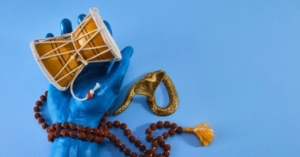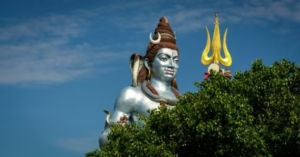
Shravan Somvar 2024: The month of Shravan, also known as Sawan, holds a special place in the Hindu calendar. It is a time of devotion, fasting, and celebration, especially dedicated to Lord Shiva. Shravan Somvar, the Mondays of the Shravan month, are considered highly auspicious and are observed with great fervor and devotion by millions of devotees. In 2024, the first Monday of Shravan falls on [insert date], marking the beginning of a period filled with religious activities and spiritual observances. This blog will explore the significance, rituals, and cultural aspects of Shravan Somvar, providing a comprehensive understanding of this sacred time.
Significance of Shravan Month
The month of Shravan is the fifth month of the Hindu lunar calendar and is named after the Nakshatra (constellation) Shravan. It typically falls between July and August. This month is considered highly auspicious due to its association with Lord Shiva. According to Hindu mythology, it was during this time that Lord Shiva drank the poison Halahala, which emerged from the churning of the ocean (Samudra Manthan), to save the universe. The poison turned his throat blue, earning him the name Neelkanth (the blue-throated one).

Importance of Shravan Somvar
Mondays, or Somvars, in the month of Shravan are especially significant for devotees of Lord Shiva. Each Monday of this month is dedicated to worshipping Shiva and seeking his blessings. The belief is that observing fasts and performing rituals on these days can lead to the fulfillment of one’s wishes, prosperity, and spiritual growth. Many women observe these fasts for the well-being of their husbands and families, while unmarried women do so to find a suitable life partner.
Rituals and Observances
1. Fasting (Vrat): Devotees observe a strict fast from sunrise to sunset. Some follow a complete fast, consuming only water, while others may have a single meal in the evening, typically consisting of fruits, milk, and other satvik (pure) foods. The fasting is seen as a form of penance and devotion to Lord Shiva.
2. Abhishekam: One of the main rituals performed on Shravan Somvar is the Abhishekam, where the Shivalinga is bathed with various sacred substances such as milk, water, honey, ghee, and curd. Each substance has its own significance and is believed to please Lord Shiva.
3. Offering Bilva Leaves: Bilva (or Bel) leaves are considered very dear to Lord Shiva. Devotees offer these leaves along with other items such as flowers, incense, and lamps. The offering of Bilva leaves is believed to bring peace, prosperity, and the fulfillment of desires.
4. Chanting and Prayers: Devotees chant mantras and prayers dedicated to Lord Shiva, such as the Maha Mrityunjaya Mantra and the Shiva Panchakshara Stotra. These chants are believed to invoke the blessings of Shiva and provide protection from harm.
5. Visiting Temples: Many devotees visit Shiva temples, especially the Jyotirlingas, which are considered the most sacred abodes of Shiva. Special pujas and ceremonies are conducted in these temples, attracting large crowds of worshippers.
6. Katha and Bhajans: Listening to and reciting the stories (Katha) of Lord Shiva and singing devotional songs (Bhajans) are common practices during Shravan Somvar. These activities help devotees connect with the divine and experience a sense of spiritual upliftment.

Cultural Significance and Celebrations
The month of Shravan and the observance of Shravan Somvar are not only religiously significant but also culturally enriching. Across India, various regions have their unique ways of celebrating this month:
1. Kanwar Yatra: In North India, particularly in the states of Uttar Pradesh, Haryana, Rajasthan, Punjab, and Bihar, the Kanwar Yatra is a prominent feature of Shravan. Devotees, known as Kanwariyas, undertake a pilgrimage to fetch holy water from the Ganges River and offer it to the Shivalingas in their local temples. The journey is often on foot, and it is considered an act of great devotion and penance.
2. Shravan Mela: Many temples, especially the Jyotirlingas, host large fairs and gatherings known as Shravan Melas. These events include religious ceremonies, cultural performances, and stalls selling various items. The most famous among these is the Deoghar Shravan Mela in Jharkhand, which attracts millions of devotees.
3. Dance and Music: Traditional dance forms and music dedicated to Lord Shiva are performed during this time. Bharatanatyam, Odissi, and Kathak dancers often present pieces that depict stories from Shiva’s life. Similarly, classical and folk musicians perform devotional songs and hymns.
The Spiritual and Personal Benefits of Shravan Somvar
Observing Shravan Somvar can have numerous spiritual and personal benefits:
1. Spiritual Growth: Engaging in rituals and practices dedicated to Lord Shiva helps devotees deepen their spiritual connection and understanding. It is a time for introspection, meditation, and seeking inner peace.
2. Mental and Physical Discipline: Fasting and adhering to specific dietary restrictions require discipline and self-control, which can lead to improved mental and physical health. Many devotees report feeling a sense of detoxification and rejuvenation during this period.
3. Fulfillment of Desires: It is believed that sincere devotion and fasting during Shravan Somvar can lead to the fulfillment of personal wishes and desires. Whether it is for health, prosperity, or finding a suitable partner, devotees seek Shiva’s blessings for their specific needs.
4. Community and Family Bonding: Participating in communal prayers, temple visits, and family rituals strengthens bonds with the community and family. It is a time for collective worship and shared experiences.

Shravan Somvar Legends and Stories
Several legends and stories are associated with Shravan Somvar, adding to its mystical and spiritual significance:
1. The Legend of Samudra Manthan: As mentioned earlier, the story of Samudra Manthan, or the churning of the ocean, is central to the significance of Shravan. The gods and demons churned the ocean to obtain the nectar of immortality (Amrit). During this process, the deadly poison Halahala emerged, threatening to destroy the universe. Lord Shiva consumed the poison to save the world, which is why he is worshipped for his selflessness and bravery.
2. The Tale of Lord Shiva and Goddess Parvati: Another popular story is about Lord Shiva and Goddess Parvati. It is believed that Parvati observed strict fasts and performed rigorous penance during Shravan to win Shiva’s affection and become his consort. This story highlights the power of devotion and the importance of Shravan for those seeking marital bliss.
3. The Story of Markandeya: Markandeya was a young devotee of Lord Shiva who was destined to die at a young age. His parents were heartbroken and sought Shiva’s blessings. On the day Markandeya was supposed to die, he clung to a Shivalinga and prayed fervently. Pleased with his devotion, Shiva appeared and blessed him with immortality. This story underscores the protective and compassionate nature of Shiva.
Modern-Day Observance of Shravan Somvar
In the modern world, the observance of Shravan Somvar has adapted to contemporary lifestyles while retaining its core spiritual essence:
1. Virtual Participation: Many devotees who cannot visit temples in person participate in online pujas and live-streamed ceremonies. This allows them to stay connected to their faith and partake in the rituals from the comfort of their homes.
2. Social Media and Digital Platforms: Social media platforms are abuzz with posts, videos, and live sessions about Shravan Somvar. Devotees share their experiences, rituals, and prayers, creating a virtual community of worshippers.
3. Health-Conscious Fasting: With growing awareness about health and nutrition, many devotees opt for healthier fasting options. They choose nutrient-dense foods and ensure they stay hydrated, making the fasting experience both spiritual and physically beneficial.
Shravan Somvar, especially the first Monday of the Sawan month, is a time of deep devotion, cultural richness, and spiritual significance. It is a period that brings people closer to their faith, encourages discipline, and fosters a sense of community. Whether through traditional rituals, modern adaptations, or personal reflections, the observance of Shravan Somvar continues to inspire and uplift millions of devotees around the world. As we celebrate Shravan Somvar 2024, let us embrace the spirit of devotion, selflessness, and inner growth that this sacred time represents.
Also Read –
https://festivaldealsrush.com/6-meditation-techniques/

